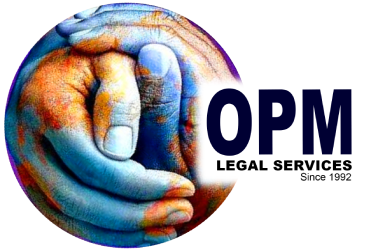
What is SWIFT GPI?
30/03/2024
Taxes in Panama
10/04/2024The tax issue is a controversial one: what to choose between tax havens and tax hells?
In the global financial world, the discussion about tax havens and tax hells reveals profound discrepancies in how tax fairness and the administration of economic resources are perceived.
The controversy between tax havens and tax hells transcends simple categorizations of right and wrong, leading to a complex debate on ethics, economics and sovereignty.
A tax haven is generally defined as offering low or zero tax rates, attracting individuals and corporations in search of tax efficiency.
Contrary to the frequent negative narrative, which associates them with tax evasion and lack of transparency, these territories espouse the theory that their model contributes to healthy tax competition and promotes global investment.
This perspective argues that, by providing a haven from high tax burdens, tax havens incentivize more burdensome jurisdictions to reconsider and potentially reform their tax structures to become more internationally competitive.
At the opposite extreme, countries with high-burden tax systems, often colloquially referred to as “tax hells,” justify their policies as a necessary means of financing extensive public services and social welfare programs.
High taxation, they argue, is essential to redistribute wealth and ensure a more equitable society. Tax infernos encourage the search for mechanisms to reduce tax liabilities, including the shifting of capital to lower tax jurisdictions.
The tax history of various nations reveals a constant evolution of tax policies, from specific and sometimes quaint taxes to more sophisticated and comprehensive systems such as income tax.
What is your choice between tax havens and tax hells?
This evolution reflects an attempt to balance the need for state financing with the impact on the economy and society.
For example, the income tax, introduced in times of acute fiscal needs such as wars, has become a cornerstone of modern tax collection, although not without controversy and debate about its fairness and effectiveness.
This dialogue about tax havens and tax hells encapsulates fundamental questions about fairness, equity and accountability in the global financial system.
How do we balance the need to finance the public good with the right of individuals and businesses to retain a fair share of their income? Is tax competition between countries a race to the bottom or a spur to efficiency and innovation? Is the entrepreneur forced to choose between tax havens and tax hells?
Resolving these questions requires a careful analysis that considers not only the economic implications, but also the ethical and social values that underpin tax policies.
The search for a fairer and more equitable system involves recognizing the complexity of these issues and working toward solutions that respect both the sovereignty of nations and the needs of the global community.
Unfortunately, this is the theory. Today the entrepreneur is forced to choose between tax havens and tax hell to survive.
Whose idea was it to create taxes?
The history of taxation dates back to the earliest civilizations, where the need to finance community activities and wars led to the creation of tax systems. In Mesopotamia, around 2500 BC, some of the earliest tax systems were documented, with tribute paid in livestock, grain or labor. This concept spread to many other ancient cultures.
In ancient Egypt, for example, there was a well-developed tax system, including taxes on agriculture and livestock. The Egyptians also implemented the use of censuses to determine taxes, ensuring that everyone paid a fair share based on their means.
Over time, taxation became more sophisticated and diversified. The Roman Empire, for example, introduced multiple forms of taxation, including direct land and personal taxes, as well as indirect taxes such as sales taxes. These taxes financed the military, public works and government services.
During the Middle Ages in Europe, the feudal system had its own form of taxation, where vassals were required to work the lord’s land or pay rent in cash or in kind. Over time, the need to finance wars and the increasing complexity of states led to the creation of more regulated and centralized taxes.
The French Revolution marked a turning point in the history of taxation, criticizing unfair tax systems and promoting ideas that would influence the modern tax structure, based on capacity to pay and equity.
In the 20th century, the implementation of the income tax, first in the United Kingdom and then in the United States and other countries, represented a significant evolution in taxation, providing governments with a stable source of revenue.
And how were tax havens born?
Tax havens as we understand them today began to emerge in the 20th century, although their concept has historical antecedents related to international trade and the search for favorable tax conditions.
Originally, cities and regions offered tax benefits to attract merchants and wealth, a practice that can be seen reflected in the Middle Ages with examples such as Venice.
As the 20th century progressed, some jurisdictions began to realize the economic benefits of attracting foreign capital through lax tax regimes, low or no taxation, and the offer of banking secrecy.
The Channel Islands and Switzerland are early examples where significant tax advantages were offered, marking the beginning of modern tax havens.
Over time, places such as the Bahamas, the Cayman Islands and Panama joined this list, becoming international financial centers known for their ability to attract wealth and business activities through attractive tax policies.
The era of globalization and technological development further facilitated the use of these tax havens, allowing multinational corporations and wealthy individuals to move funds and set up complex corporate structures to minimize their tax obligations.
In response, international organizations such as the OECD began implementing measures to increase transparency and the exchange of tax information between countries.
Although they have made many efforts, the effectiveness of these initiatives remains questionable. We are waiting for you in the world of tax havens!





